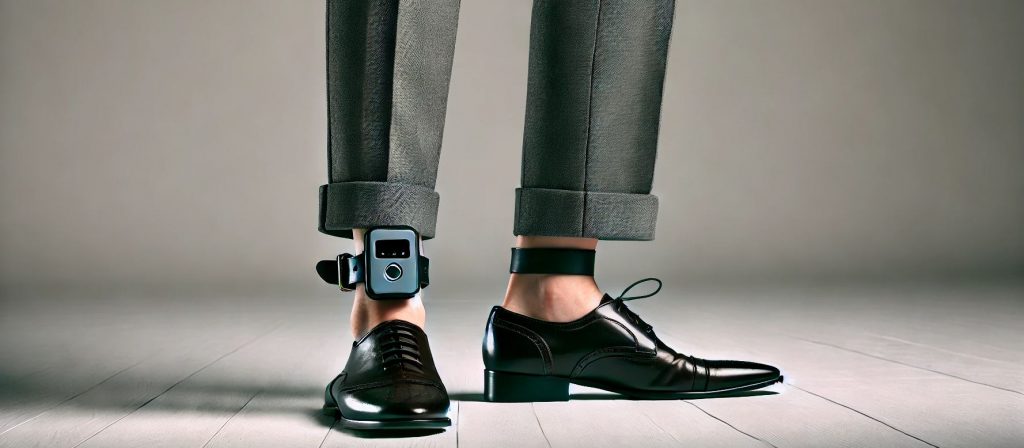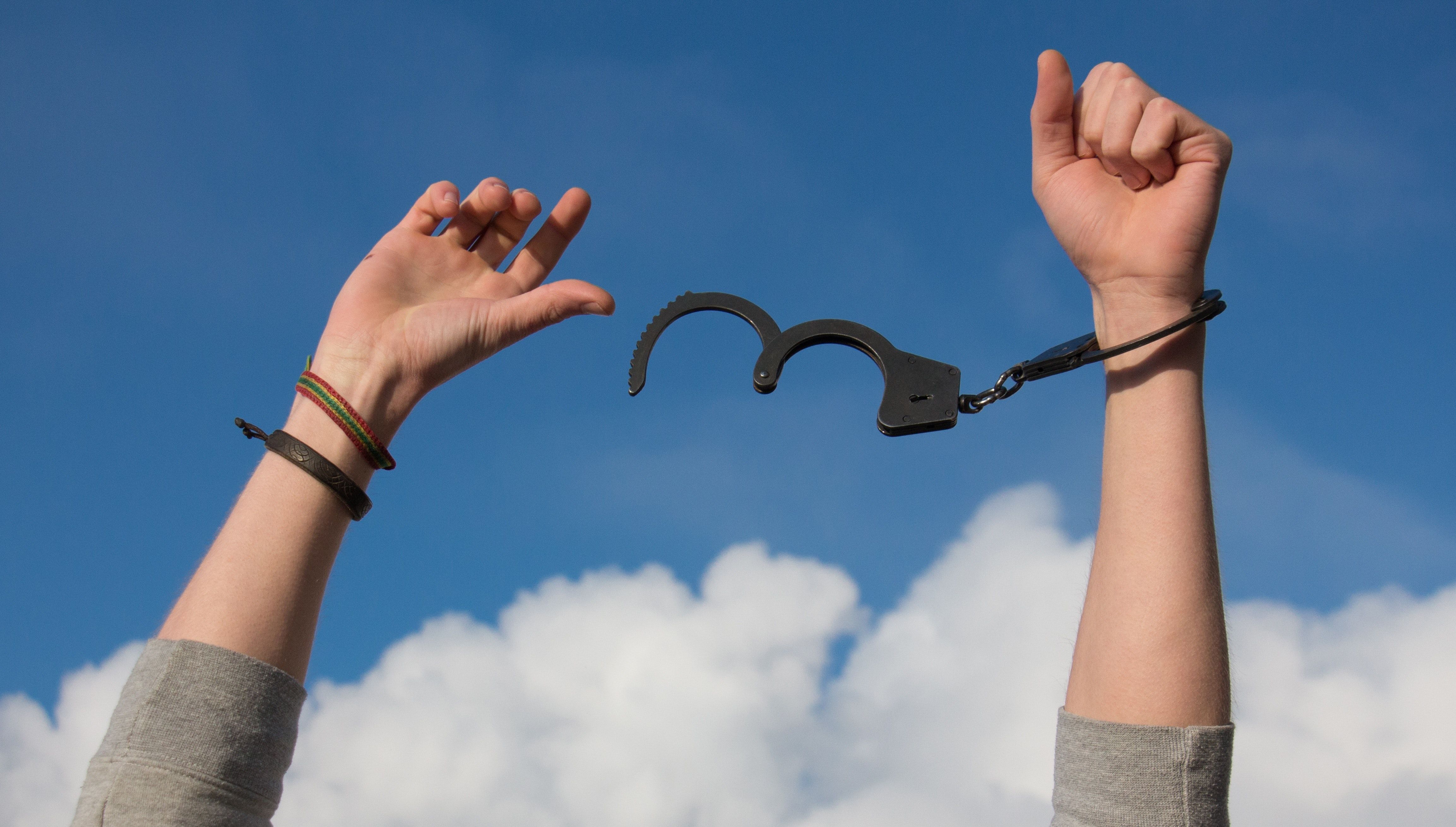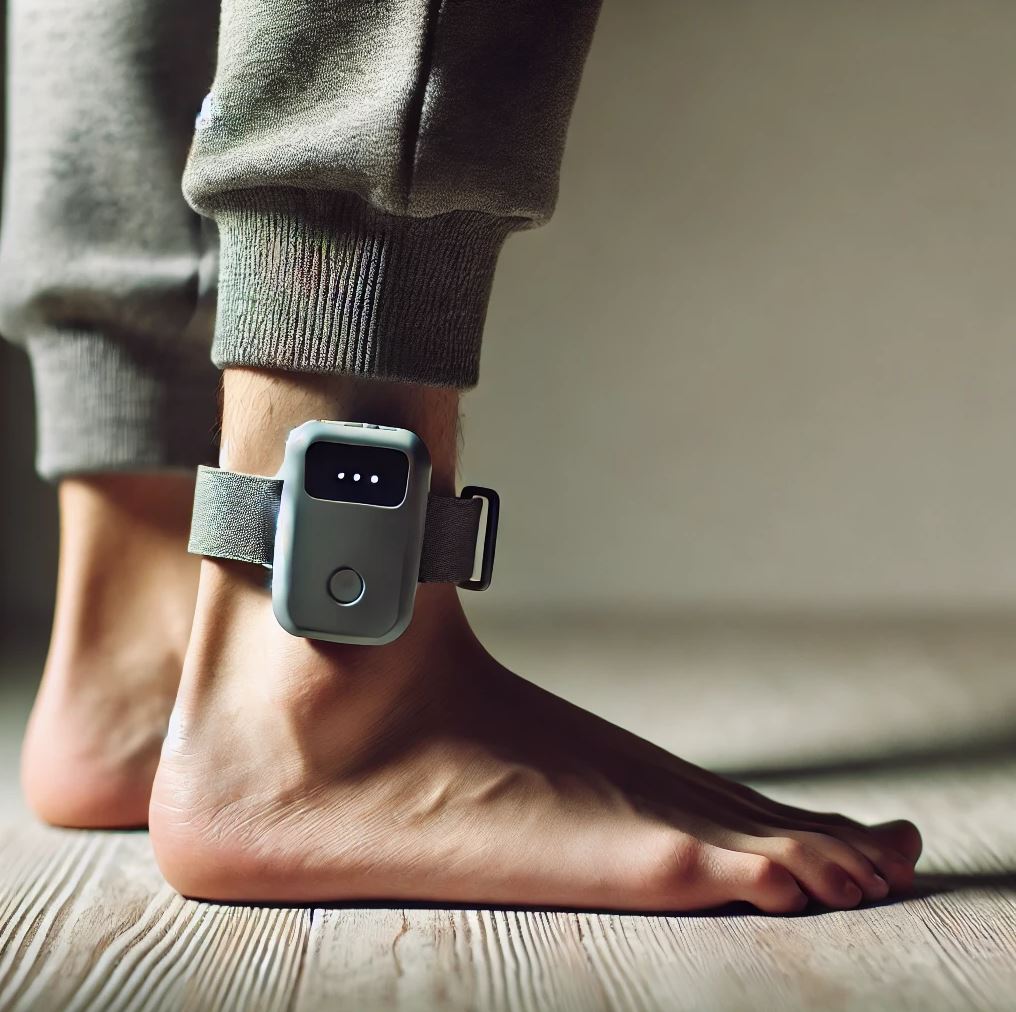There are different types of tether devices.
Which device the court orders often depends on the offense the defendant was convicted of in the case.

Electronic Monitoring Devices, Including Tether, Instead of Jail
Electronic monitoring devices, also known as tethers, are used in cases that require more intensive monitoring. Tether devices allow for the close supervision of a defendant while in the community. Schedules can enable a person to work, attend school, counseling, and other court-related obligations. The judge can designate restricted areas in cases with a victim. Progress and compliance reports are regularly sent to the court. Sometimes, a savvy defense lawyer can persuade a judge to order monitoring on a tether instead of jail.
Many counties have disbanded their Work Release Programs due to the costs involved. Instead, these counties have started using tethers as a “House Arrest” or “Work Release.” A tether allows a person to remain employed and stay at home rather than sit in jail. The person on a tether has to pay for its use. It is expensive, and costs vary depending on the type of tether ordered by the court.
Types of Tethers That Can Be Used Instead of Jail
Global Positioning System (GPS) allows a defendant’s movements to be tracked by satellite and reported regularly. The defendant’s movement is tracked in as close to real-time as possible. The court can program restricted areas into the system. Appropriate candidates for GPS are defendants charged with, or convicted of, domestic violence, criminal sexual conduct, or any crime with a victim. Requirements include having a stable address and power source. The defendant is given a curfew, among other things. A judge who is inclined to keep a defendant in jail to protect an alleged victim, usually in a felony or domestic violence case, might consider a GPS tether instead of jail. A tether is a good alternative in this situation because the tether company will notify the alleged victim if the defendant is near their home or employment.
Transdermal Alcohol Tether: This device monitors the defendant’s blood alcohol content in real time. It also monitors body temperature and distance between the leg and the unit to detect possible tampering. The defendant must agree to follow all the rules and regulations of the Pretrial Supervision Tether Unit.
Breathalyzer Monitor: This system does not require an ankle bracelet. It randomly monitors and screens a person for alcohol while at home. They must submit to a breath test during scheduled times throughout the day. The unit has a camera to verify the defendant’s identity. Results are reported to the monitoring center.
Ignition Interlock: This device is installed in a car and prevents it from starting if it detects alcohol in a person’s system. Before the vehicle can start, a driver must blow into the device and pass a test.

How Top Attorneys Advocate for Tether Instead of Jail
Top attorneys often advocate for the use of a tether or electronic monitoring device as an alternative to jail time for their clients, especially in situations where incarceration may be deemed excessively harsh or unnecessary. The argument for tether over jail typically hinges on a variety of factors. Attorneys might emphasize the defendant’s lack of serious criminal history, presenting them as a low risk to the community, thereby arguing that strict jail time isn’t necessary for public safety. They often point out the benefits of allowing the defendant to maintain employment, continue with education, or fulfill family responsibilities, which can be significantly disrupted by jail time.
Moreover, they may highlight how tethering can effectively ensure the defendant’s compliance with court orders, such as curfews or restrictions to specific geographical areas, without the adverse impacts of incarceration. In cases involving substance abuse, lawyers may argue that their clients would be better served by rehabilitation programs and strict monitoring rather than jail time, suggesting that tethers can be integrated with treatment plans. The cost-effectiveness of electronic monitoring compared to incarceration is another point often raised, as it can be less burdensome on the state’s resources.
Additionally, attorneys may advocate for a tether as a compromise that holds the defendant accountable while providing an opportunity for rehabilitation and minimizing the adverse societal and personal impacts of jail time. Such advocacy requires a nuanced understanding of the client’s legal system and individual circumstances, balancing the need for accountability with the potential benefits of alternative sentencing options.
The Downside to Tether Instead of Jail
Living with an electronic tether or ankle monitor can be a significantly life-altering experience. These devices are used for various reasons, including house arrest, as a condition of bail, or for monitoring as part of a probation or parole arrangement. Here’s what it’s like for individuals who are required to wear a whether instead of going to jail:
- Restricted Movement: The most immediate impact of an ankle monitor is the restriction on your movement. Depending on the conditions set by the court or probation office, you may be confined to your home or allowed to travel only within a specific area. Movement restrictions can affect your ability to work, attend school, or participate in social activities.
- Constant Monitoring: Ankle monitors often use GPS technology to track your location. This continuous surveillance can feel intrusive and lead to a sense of loss of privacy.
- Physical Discomfort: The device itself can be bulky and uncomfortable to wear. It may irritate or chafe the ankle, and sleeping with or performing certain activities can be awkward.
- Stigma and Embarrassment: Wearing an ankle monitor can be associated with a social stigma. Individuals may feel embarrassed or ashamed and go to great lengths to hide the device under clothing, which can affect their social interactions and mental well-being.
- Routine Check-ins and Compliance: Living with a tether often requires regular check-ins with a probation officer or monitoring service. Failure to comply with the rules (like charging the device, maintaining designated boundaries, or abiding by a curfew) can result in legal consequences, including possible jail time.
- Financial Cost: In some Michigan courts, individuals must pay for electronic monitoring, which can add a financial burden, especially if the restricted movement impacts their ability to work.
- Adapting to a New Routine: Individuals must adjust their daily routines to accommodate the tether’s restrictions and requirements. New routines include planning activities around permitted times and locations and ensuring the device is charged as needed.
- Psychological Impact: The experience can be stressful and anxiety-inducing, knowing that one’s movements are constantly being tracked and that a mistake could result in severe consequences.
- Impact on Family and Relationships: The restrictions and stigma can also affect family members and personal relationships, adding strain to these interactions and dynamics.
- Opportunity for Rehabilitation: On a positive note, for some, living with an ankle monitor can be seen as an opportunity to demonstrate responsible behavior, avoid incarceration, and continue with certain aspects of everyday life, such as living at home and being with family.
Overall, living with an electronic tether involves a complex mix of physical, emotional, and social challenges. It requires significant adjustments to one’s lifestyle and can have profound implications on various aspects of daily living. Despite these disadvantages, opting for an electronic tether is always better than jail time.

Michigan Criminal Defense Attorneys – Helping Clients Avoid Jail by Using a Tether Instead
An excellent criminal defense attorney knows about sentencing alternatives and options. The attorney must understand what is available to the client to help them with any issues they may have and eliminate, or at least minimize, any period of incarceration. There are numerous programs available for people with substance abuse or mental health problems (such as Sobriety Court and Drug Courts). Programs are available for first-time offenders (such as the Holmes Youthful Trainee Act and some prosecutor’s offices have First Offender Programs). Also, a lawyer can advocate for a tether instead of time in jail or prison. With the tether, the defendant is allowed to work and avoid incarceration.
The attorneys at LEWIS & DICKSTEIN, P.L.L.C. pride themselves in giving their clients top-notch legal representation. It is vital to its attorneys that the firm protects our client’s due process and constitutional rights are protected. The firm’s attorneys are award-winning, highly experienced, and extremely professional. Each has earned the respect of the legal community. If you are facing criminal charges, you want someone who knows and understands the law and is familiar with all options available at sentencing.
Call us today at (248) 263-6800 for a free consultation or complete an online Request for Assistance Form. We will contact you promptly and find a way to help you.














